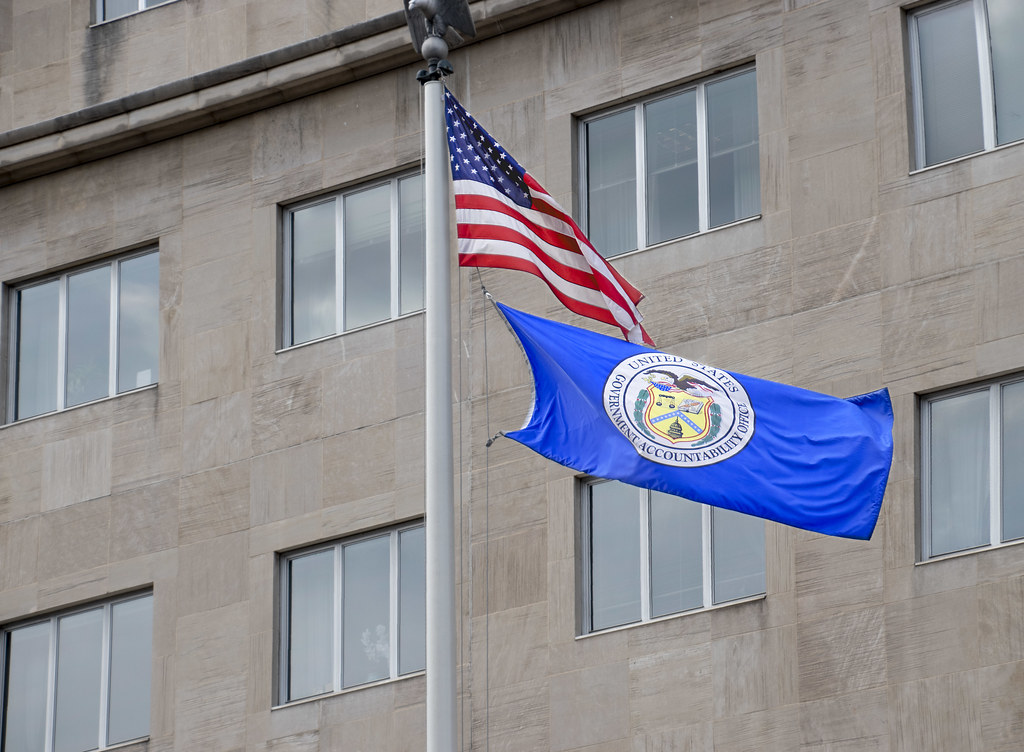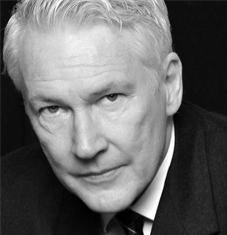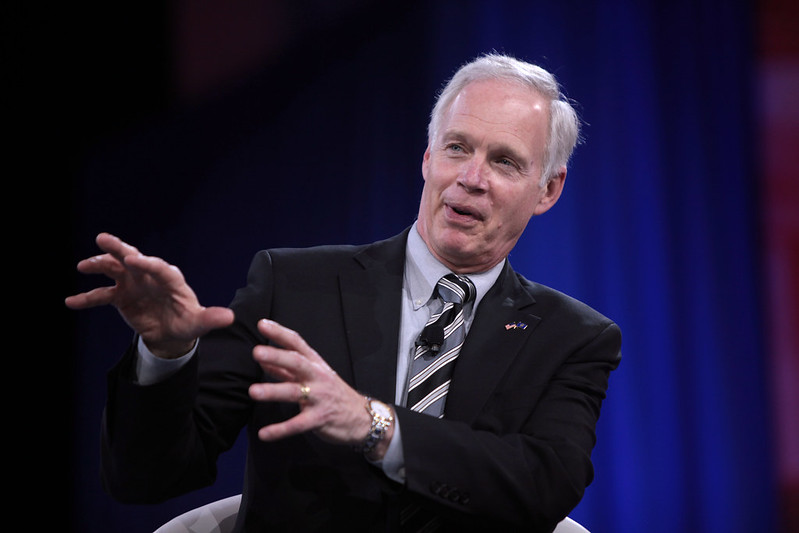Alan Dershowitz’s Strange Constitutional Arguments on Impoundment and Foreign Policy
The controversial member of the president’s impeachment defense team argues that the withholding of military aid to Ukraine did not violate the Impoundment Control Act.

Published by The Lawfare Institute
in Cooperation With

On Jan. 17, the White House announced that Alan Dershowitz would be joining the president’s defense team in his Senate impeachment trial. That same day, Dershowitz published a statement defending President Trump’s withholding of military assistance to Ukraine and criticizing a report by the Government Accountability Office (GAO) that concluded that the hold on aid violated the Impoundment Control Act. Dershowitz has made many controversial legal arguments recently—but given his prominent upcoming role defending the president, it is worth taking a close look at what he has to say on the question of Trump withholding aid.
Dershowitz writes that “[t]he Constitution allocates to the president the sole authority over foreign policy (short of declaring war or signing a treaty). It does not permit Congress to substitute its foreign policy preferences for those of the president.” Yet I’m not sure what this first sentence is supposed to mean. If Dershowitz means that the president can appoint his own secretaries of state and defense without Senate consent; or that he can appoint ambassadors without Senate consent; or that he can ratify the results of negotiations on security, trade, or with respect to international agencies by means of executive agreements in every instance; or that he can field armies or naval forces to make rules for their operations without the consent of Congress; or that he can fund intelligence operations without the support of Congress—then it is nonsense. And if it doesn’t imply any of these things, then Dershowitz’s comment is vacuous. The president's powers over foreign policy are shared, so whatever "sole" authority he does have cannot be in the realm of foreign affairs.
Nor do I understand what Dershowitz means to assert when he claims that the Constitution does not permit Congress to substitute its foreign policy preferences for those of the president. Has he forgotten the congressional decision—of which I disapproved, but the constitutional basis for which I never questioned—to force the U.S. withdrawal from Vietnam?
The president is the sole organ of U.S. foreign affairs because he conducts those affairs, not because he is the sole determinant of their content. He executes the laws; he does not solely formulate them.
Dershowitz also states that “[t]o the extent that the statute at issue constrains the power of the president to conduct foreign policy, it is unconstitutional.” I would like to hear some argument for this preposterous proposition. Why, exactly, does a statute that prevents the president from exercising a super-veto over validly adopted legislation become unconstitutional when the subject is the appropriation of military assistance rather than, say, the authorization of expenditure for a naval base or a weapons system or for an international agency? Or is Dershowitz seriously contending that the president need not actually spend money when he disapproves of an appropriation for defense or national security purposes? Is he really asserting that the president need not execute an appropriated expenditure if the subject is foreign policy—for what expenditure does not “constrain the power of the president,” if only by giving priority to one appropriation rather than another?
“Consider the following hypothetical situation,” Dershowitz writes. “Congress allocates funds to Cuba (or Iran or Venezuela). The president says that is inconsistent with his foreign policy and refuses to release the funds. Surely the president would be within his constitutional authority.”
What kind of constitutional argument is this ipse dixit? What are the reasons—textual, historical, structural, prudential, doctrinal or ethical—that would support such an astoundingly novel assertion?
Suppose a president redirected funds appropriated by Congress for medical assistance to a stricken country—say, one on the U.S. border suffering from a pandemic—preventing those funds from flowing until local officials opened criminal investigations of American political figures or those figures’ relatives. Or suppose validly appropriated and authorized funds were withheld by the president until that neighboring country agreed to pay for a border wall.
The reason such maneuvers are so constitutionally damaging, the reason they are precisely the sort of high crime that the framers made the basis for impeachment—like bribery and treason—is that they strike at the heart of government under constitutional law. In this case it is the constitutional law of congressional appropriations, which is more fundamental to the integrity of the U.S. constitutional system than seems to be widely appreciated.
The central bargain of representative government is that the taxing and spending powers are placed in the hands of elected officials who are accountable to the voters every two years. When the president refuses to disburse funds, or finances U.S. government operations out of private funds, he commits the gravest of constitutional offenses.
But, Dershowitz argues, Trump is not the first president to have acted in this manner: “[C]onsider the actual situation that former President Barack Obama created when he unilaterally made the Iran deal and sent that enemy of America billions of dollars without congressional approval.”
The problem, of course, is that the money released under the nuclear deal belonged to Iran in the first instance. Is it possible that the Felix Frankfurter Professor of Law Emeritus at the Harvard Law School does not recognize the difference between releasing Iranian funds that had been sequestered by the U.S. and not releasing appropriated U.S. funds drawn from the U.S. Treasury?
Dershowitz goes on:
Why then would a nonpartisan agency get it so wrong as a matter of constitutional law. There are two obvious answers: first, in the age of Trump there is no such thing as nonpartisan. The political world is largely divided into people who hate and people who love President Trump. This is as true of long term civil servants as it is of partisan politicians. We have seen this with regard to the FBI, the CIA, the Fed and other government agencies that are supposed to be nonpartisan. ... Second, even if the GAO were non-partisan in the sense of preferring one political party over the other, it is partial to Congress over the president. The GAO is a congressional body. It is part of the legislative, not executive, branch. As such, it favors congressional prerogatives over executive power.
Having failed even to make an effort to show how the GAO “got it so wrong,” Dershowitz decides to explain the motivation behind a report of a federal agency generally regarded as nonpartisan. The explanation is that “there is no such thing as nonpartisan.” And, even if there were, he suggests, a GAO report would always favor congressional prerogatives because the GAO is part of the legislative branch. Presumably the same sort of reasoning would apply to the reports of the Bureau of Labor Statistics, which is an executive agency. It is apparently inconceivable that civil servants would try to apply the law neutrally and give reasons for its decisions. It reminds me of George Bernard Shaw’s observation that a pessimist is someone who thinks everyone is as rotten as he is, and hates them for it.
“In any event,” Dershowitz writes, “even if the GAO were correct in its legal conclusion—which it is not—the alleged violation would be neither a crime nor an impeachable offense. It would be a civil violation subject to a civil remedy, as were the numerous violations alleged by the GAO with regard to other presidents.”
Dershowitz has sometimes appeared to have maintained that a president may be impeached only for conduct that violates the criminal code. More recently, however, he seems to have come around to the conclusion that an impeachable offense need not be a crime—so the fact that the violation of the Impoundment Act does not carry a criminal penalty is beside the point, as is the corresponding point that it might be subject to some civil remedy. Instead, the question is whether or not the refusal to spend appropriated funds owing to a policy difference with Congress is a “high crime.” Does it strike at the fundamental arrangements of the constitutional system? I have some strong views on this, but for now let me content myself with saying that this statement by the president’s legal representative to the impeachment trial in the Senate is so unserious as to call into question whether there is in fact any legal defense for the president’s actions.
It is true that an impeachable “abuse of power” can’t simply consist in using the powers of the executive for personal, political gain; that happens all the time. Abuse of power, for impeachment purposes, must consist in corruptly using those powers for personal, political gain. If the president in fact withheld military assistance authorized by Congress in order to gain an advantage over former Vice President Joe Biden, that was an unlawful and corrupt abuse of power. The fact that the GAO confirmed that this was a violation of law is not, as Dershowitz claims, irrelevant. And the claim that other presidents violated the same provisions—without a showing that they did so for personal, political reasons—has nothing to do with the question of impeachment.
Of course, Trump’s defense team may well argue that the president never intended to connect his withholding of funds from Ukraine with the demand that the Ukrainian president announce an investigation of Biden and his son. But given the testimony by numerous witnesses before the House committees in the impeachment inquiry, that defense would require controverting evidence that can come only from witnesses like John Bolton and Mick Mulvaney—whose testimony the president and Senate Majority Leader Mitch McConnell have not been eager to hear.



-final.png?sfvrsn=b70826ae_3)

